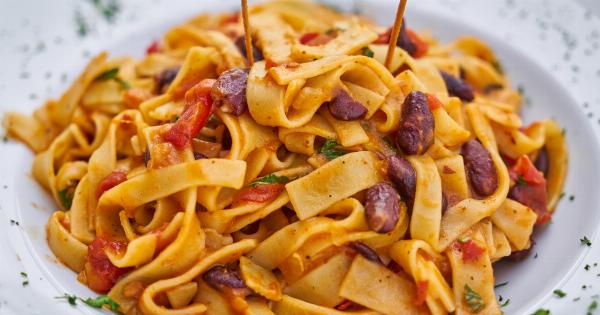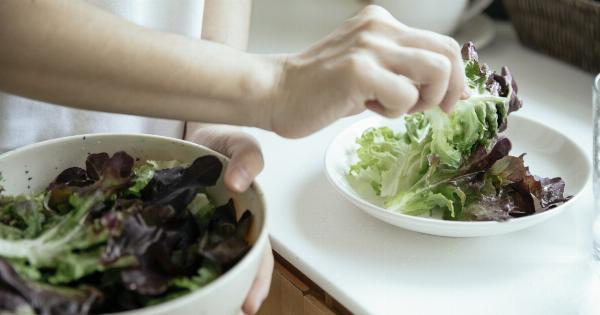Kidney cancer is one of the most common types of cancer that affect both men and women.
According to the American Cancer Society, about 76,080 new cases of kidney cancer are estimated to be diagnosed in 2021, and about 13,780 people are expected to die from this disease. Kidney cancer starts in the cells of the kidney and can spread to other parts of the body if left untreated. However, with early detection and proper treatment, kidney cancer can be cured.
There are many causes of kidney cancer, including smoking, obesity, high blood pressure, and family history of kidney cancer. However, some studies suggest that a diet rich in fruits and vegetables may reduce the risk of developing kidney cancer.
In this article, we will explore powerful vegetables that can help reduce the risk of kidney cancer.
Broccoli
Broccoli is a cruciferous vegetable that is rich in nutrients such as vitamin C, fiber, and folate. It also contains a compound called sulforaphane, which has been shown to have anti-cancer properties.
Several studies have suggested that sulforaphane may help reduce the risk of kidney cancer by killing cancer cells and preventing them from spreading. In addition, broccoli has a high water content, which may help flush out toxins and prevent the formation of kidney stones.
Spinach
Spinach is a leafy green vegetable that is packed with vitamins and minerals such as vitamin K, vitamin A, magnesium, and iron. It also contains antioxidants such as lutein and zeaxanthin, which can help fight cancer cells.
A study published in the International Journal of Cancer found that consuming spinach can reduce the risk of kidney cancer. The study found that people who consumed at least two servings of spinach per week had a 38% reduced risk of kidney cancer compared to those who consumed spinach less than once per month.
Kale
Kale is another cruciferous vegetable that is high in nutrients such as vitamin C, vitamin K, and fiber. It also contains compounds called glucosinolates, which can help fight cancer cells.
A study published in the International Journal of Cancer found that people who consumed at least three servings of cruciferous vegetables per week, including kale, had a 23% reduced risk of kidney cancer compared to those who consumed less than one serving per week.
Sweet Potato
Sweet potatoes are a root vegetable that are rich in nutrients such as vitamin C, vitamin A, and fiber. They also contain antioxidants such as beta-carotene, which can help fight cancer cells.
A study published in the Journal of Nutrition found that consuming sweet potatoes can reduce the risk of kidney cancer. The study found that people who consumed at least four servings of sweet potatoes per week had a 50% reduced risk of kidney cancer compared to those who consumed sweet potatoes less than once per week.
Cucumber
Cucumbers are a refreshing vegetable that are low in calories and high in water content. They also contain antioxidants such as vitamin C and beta-carotene, which can help fight cancer cells.
A study published in the International Journal of Cancer found that consuming cucumbers can reduce the risk of kidney cancer. The study found that people who consumed at least two servings of cucumber per week had a 44% reduced risk of kidney cancer compared to those who consumed cucumbers less than once per week.
Tomatoes
Tomatoes are a red fruit that are high in nutrients such as vitamin C, vitamin A, and lycopene, a powerful antioxidant that can help fight cancer cells.
Several studies have suggested that consuming tomatoes and tomato-based products may reduce the risk of kidney cancer. A study published in the Journal of the National Cancer Institute found that people who consumed two or more servings of tomato sauce per week had a 24% reduced risk of kidney cancer compared to those who consumed less than one serving per month.
Carrots
Carrots are a root vegetable that are high in nutrients such as vitamin A, fiber, and potassium. They also contain antioxidants such as beta-carotene, which can help fight cancer cells.
A study published in the International Journal of Cancer found that consuming carrots can reduce the risk of kidney cancer. The study found that people who consumed at least four servings of carrots per week had a 27% reduced risk of kidney cancer compared to those who consumed carrots less than once per month.
Mushrooms
Mushrooms are a fungi that are rich in nutrients such as selenium, vitamin D, and various antioxidants that can help fight cancer cells. Several studies have suggested that mushrooms may reduce the risk of kidney cancer.
A study published in the International Journal of Cancer found that consuming mushrooms can reduce the risk of kidney cancer. The study found that people who consumed at least three servings of mushrooms per week had a 45% reduced risk of kidney cancer compared to those who consumed mushrooms less than once per month.
Garlic
Garlic is a herb that is known for its strong flavor and smell. It is also a potent anti-cancer vegetable. Garlic contains sulfur compounds such as allicin, which can help fight cancer cells.
Several studies have suggested that consuming garlic can reduce the risk of kidney cancer. A study published in the Journal of Cancer Research and Clinical Oncology found that people who consumed garlic regularly had a 44% reduced risk of kidney cancer compared to those who did not consume garlic.
Onions
Onions are a vegetable that are known for their strong taste and smell. They are also a potent anti-cancer vegetable. Onions contain sulfur compounds such as quercetin, which can help fight cancer cells.
Several studies have suggested that consuming onions can reduce the risk of kidney cancer. A study published in the British Journal of Cancer found that people who consumed onions regularly had a 56% reduced risk of kidney cancer compared to those who did not consume onions.
Conclusion
There are many powerful vegetables that can help reduce the risk of kidney cancer. These vegetables are loaded with nutrients, antioxidants, and anti-cancer compounds that can help fight cancer cells.
By including these vegetables in your diet, you can significantly reduce your risk of developing kidney cancer. However, it is important to note that a healthy diet is just one part of cancer prevention.
It is also important to maintain a healthy lifestyle by exercising regularly, avoiding tobacco and alcohol, maintaining a healthy weight, and getting regular check-ups with your doctor.



























